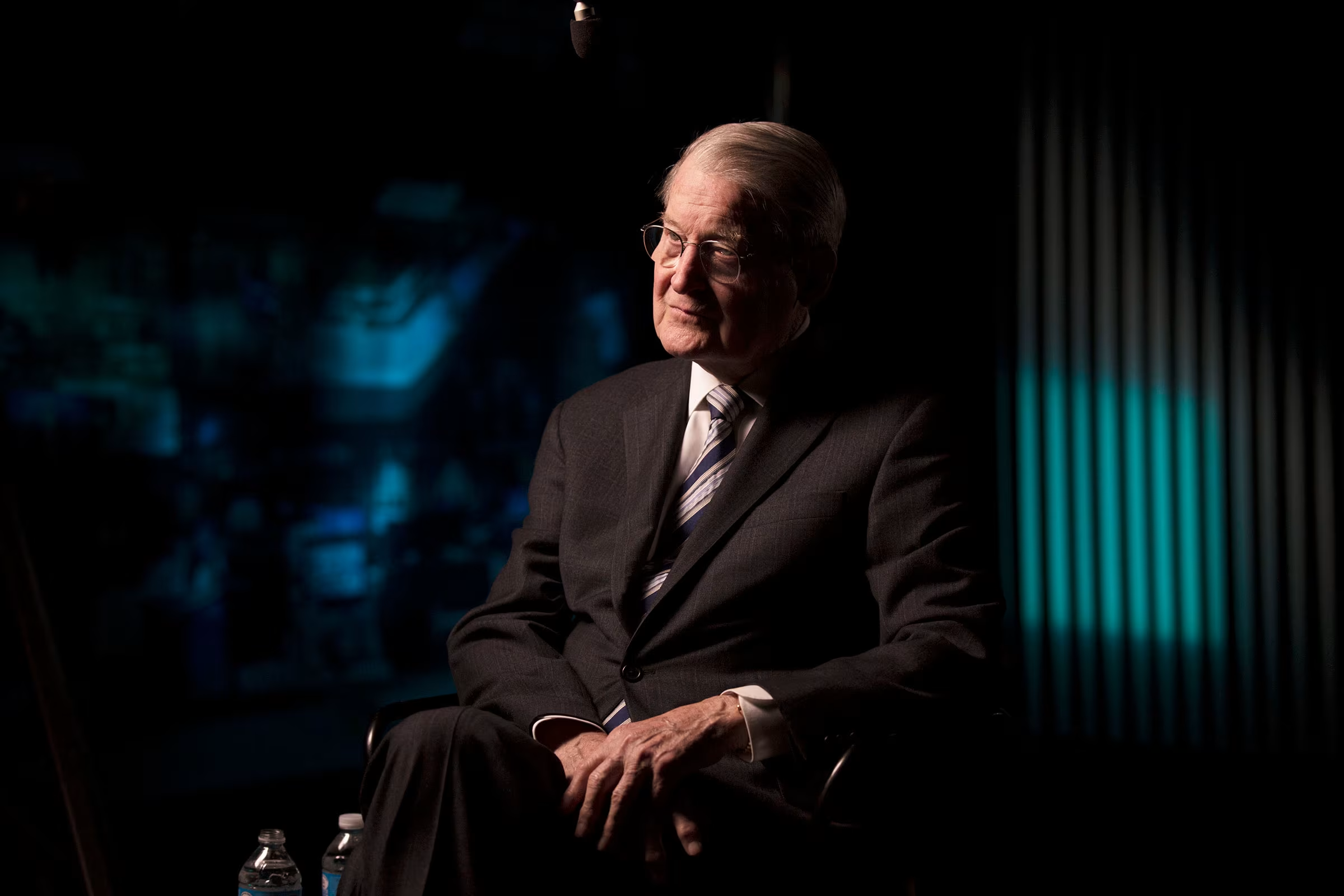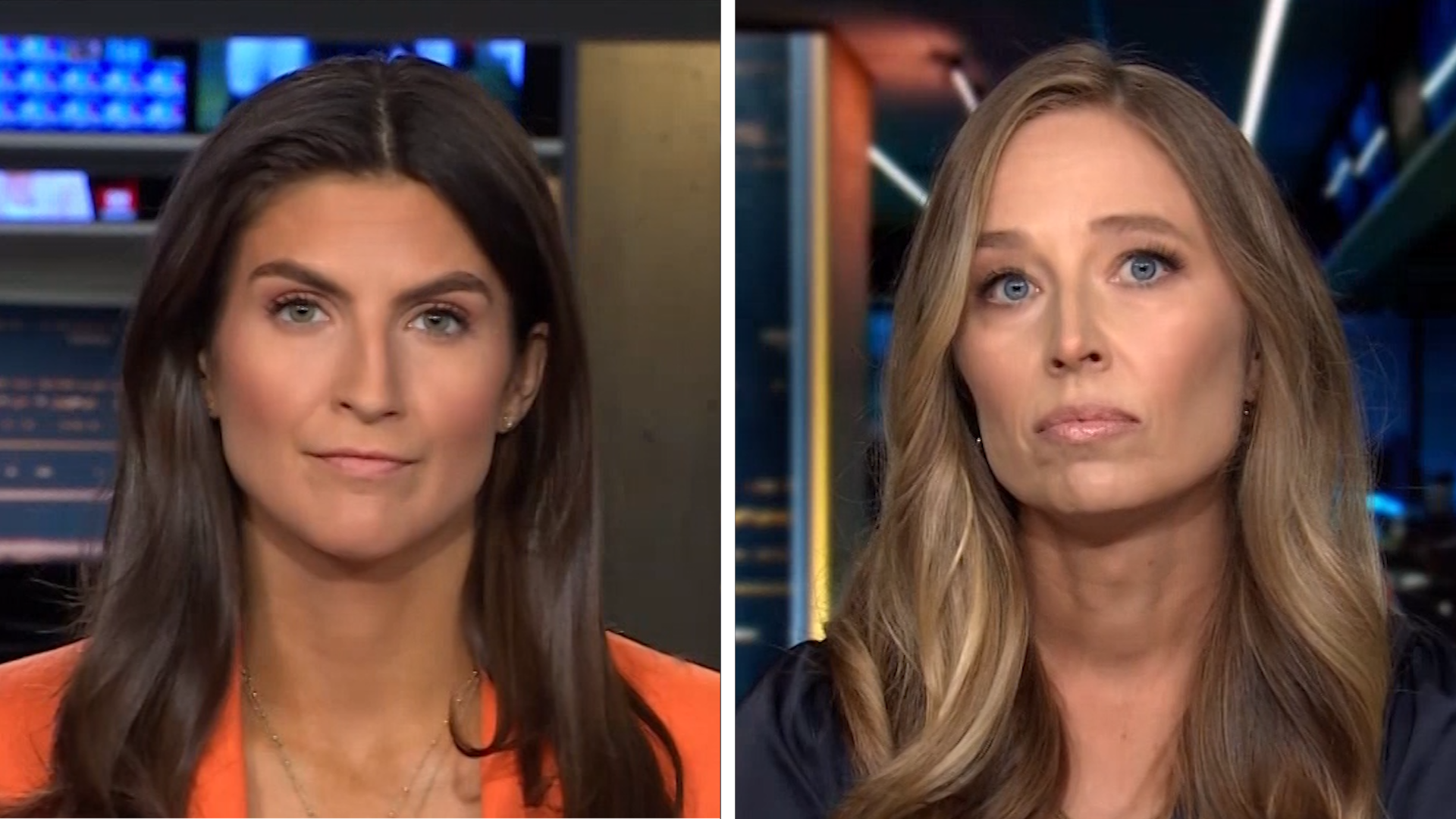
Man charged for throwing a sandwich at an officer in DC worked at DOJ and has been fired
Entities mentioned:
- Sean Charles Dunn: Moral outrage, Indignation, Righteousness
- Pam Bondi: Justice, Power, Control
- Donald Trump: Control, Power, Security
- Jeanine Pirro: Loyalty, Justice, Control
- Department of Justice: Control, Justice, Power
- US Customs and Border Protection: Duty, Security, Control
Article Assessment:
Credibility Score: 70/100
Bias Rating: 65/100 (Lean Right)
Sentiment Score: 30/100
Authoritarianism Risk: 75/100 (Authoritarian Tendencies)
Bias Analysis:
The article leans slightly right, giving more space to pro-law enforcement voices and emphasizing the administration's tough stance. However, it does include some balancing information about crime statistics contradicting the administration's claims.
Key metric: Public Trust in Government Institutions
As a social scientist, I analyze that this incident highlights growing tensions between federal law enforcement and civilians, exacerbated by the Trump administration's increased deployment of federal officers in Washington, DC. The firing and prosecution of a DOJ employee for a relatively minor offense (throwing a sandwich) suggests a hardline approach to dissent and could be seen as an attempt to intimidate government workers. This event, coupled with the takeover of local police by federal authorities, indicates a significant shift in the balance of power between local and federal law enforcement, potentially impacting public trust in government institutions. The strong rhetoric from officials like Bondi and Pirro further polarizes the situation, potentially deepening divisions between law enforcement and the public they serve.

Man charged with felony for allegedly throwing sandwich at federal law enforcement officer in DC
Entities mentioned:
- Sean Charles Dunn: Moral outrage, Indignation, Self-respect
- Pam Bondi: Power, Control, Professional pride
- Donald Trump: Power, Control, Security
- Jeanine Pirro: Loyalty, Righteousness, Power
- Abigail Jackson: Duty, Loyalty, Professional pride
Article Assessment:
Credibility Score: 70/100
Bias Rating: 65/100 (Lean Right)
Sentiment Score: 30/100
Authoritarianism Risk: 65/100 (Authoritarian Tendencies)
Bias Analysis:
The article leans slightly right due to its emphasis on law enforcement perspectives and inclusion of quotes from Trump administration officials. While it includes some context about crime statistics, it doesn't provide balanced viewpoints from critics of the increased federal presence.
Key metric: Public Trust in Government Institutions
As a social scientist, I analyze that this incident reflects growing tensions between federal authorities and citizens, particularly in the context of increased federal law enforcement presence in Washington, DC. The disproportionate response to a relatively minor incident (throwing a sandwich) with a felony charge and immediate termination of employment suggests an escalation in the government's approach to dissent. This could lead to a chilling effect on free speech and protest, potentially eroding public trust in government institutions. The framing of the incident as part of a 'Deep State' narrative by high-ranking officials further polarizes the situation and may contribute to increased societal divisions.

Trump administration to review 19 Smithsonian museums to ensure exhibits are ‘patriotic’
Entities mentioned:
- Trump administration: Control, Patriotism, Influence
- Smithsonian Institution: Professional pride, Duty, Recognition
Article Assessment:
Credibility Score: 65/100
Bias Rating: 55/100 (Center)
Sentiment Score: 35/100
Authoritarianism Risk: 70/100 (Authoritarian Tendencies)
Bias Analysis:
The article presents a factual account of the administration's actions, but the framing suggests some concern about the implications. The use of quotation marks around 'patriotic' implies skepticism about the stated motivation.
Key metric: Public Trust in Government Institutions
As a social scientist, I analyze that this move by the Trump administration to review Smithsonian museums for 'patriotic' content could significantly impact public trust in government institutions. This action suggests an attempt to exert political influence over cultural and educational institutions traditionally seen as independent. Such interference may be perceived as an overreach of executive power, potentially eroding public confidence in the neutrality and academic integrity of national museums. This could lead to increased skepticism about the information presented in these institutions and, by extension, other government-affiliated organizations.

Federal judge rejects Trump DOJ’s bid to unseal grand jury materials in Ghislaine Maxwell case
Entities mentioned:
- Judge Paul Engelmayer: Justice, Duty, Professional pride
- Trump administration: Control, Influence, Self-preservation
- Department of Justice: Transparency, Duty, Influence
- Ghislaine Maxwell: Self-preservation, Control, Greed
- Jeffrey Epstein: Power, Control, Greed
- Victims: Justice, Self-respect, Security
- Attorney General Pam Bondi: Duty, Loyalty, Influence
- Judge Richard Berman: Justice, Duty, Professional pride
Article Assessment:
Credibility Score: 75/100
Bias Rating: 45/100 (Center)
Sentiment Score: 35/100
Authoritarianism Risk: 25/100 (Generally Democratic)
Bias Analysis:
The article presents a balanced view of the situation, quoting extensively from the judge's ruling. While it mentions the Trump administration's involvement, it doesn't appear to take a partisan stance.
Key metric: Public Trust in Government Institutions
As a social scientist, I analyze that this article highlights a significant tension between the judiciary and the executive branch, specifically the Department of Justice under the Trump administration. The judge's scathing rejection of the DOJ's request to unseal grand jury materials in the Maxwell case reveals a deep skepticism of the government's motives. This conflict could potentially erode public trust in government institutions, particularly the DOJ. The judge's emphasis on the lack of new information in the requested materials and the suggestion that the government's motion might be aimed at 'diversion' rather than transparency raises questions about the administration's true intentions. Furthermore, the mention of victims being used for 'political warfare' underscores the complex interplay between justice, politics, and media attention in high-profile cases. This incident may contribute to a growing perception of government institutions being used for political purposes rather than serving justice, potentially leading to decreased public confidence in the justice system and federal agencies.

William Webster, former head of FBI and CIA, dies
Entities mentioned:
- William Webster: Duty, Professional pride, Integrity
- FBI: Reputation, Security, Justice
- CIA: Security, Control, Influence
- Jimmy Carter: Leadership, Reform, Legacy
- J. Edgar Hoover: Power, Control, Legacy
- Ronald Reagan: Leadership, Security, Legacy
- Christopher Wray: Professional pride, Duty, Integrity
- Donald Trump: Power, Control, Influence
Article Assessment:
Credibility Score: 85/100
Bias Rating: 45/100 (Center)
Sentiment Score: 65/100
Authoritarianism Risk: 20/100 (Strongly Democratic)
Bias Analysis:
The article presents a balanced view of Webster's career, citing both Republican and Democratic administrations. While largely positive, it includes critical context about the agencies he led, maintaining a centrist perspective.
Key metric: Public Trust in Government Institutions
As a social scientist, I analyze that William Webster's career significantly impacted public trust in key U.S. government institutions, particularly the FBI and CIA. His leadership focused on restoring integrity and public confidence in these agencies after periods of controversy. Webster's emphasis on professionalism, adherence to the rule of law, and transparency helped rebuild the reputation of both the FBI and CIA during critical periods of transition. His long-standing commitment to public service and his ability to lead effectively across multiple administrations underscore the importance of non-partisan, principled leadership in maintaining public trust. The article's portrayal of Webster as a figure respected across political lines suggests that his approach to governance and institutional management could serve as a model for rebuilding trust in government institutions in an era of increasing polarization.

Epstein victims are a growing political threat to Trump
Entities mentioned:
- Jeffrey Epstein: Power, Control, Greed
- Donald Trump: Self-preservation, Power, Control
- Epstein victims: Justice, Recognition, Self-respect
- Pam Bondi: Loyalty, Duty, Self-preservation
- Ghislaine Maxwell: Self-preservation, Loyalty, Control
- Virginia Giuffre: Justice, Recognition, Self-respect
- Sky Roberts: Justice, Moral outrage, Recognition
- JD Vance: Loyalty, Ambition, Self-preservation
- Kash Patel: Loyalty, Duty, Self-preservation
- Annie Farmer: Justice, Recognition, Moral outrage
- Todd Blanche: Duty, Loyalty, Self-preservation
- Jennifer Freeman: Justice, Moral outrage, Professional pride
Article Assessment:
Credibility Score: 75/100
Bias Rating: 35/100 (Lean Left)
Sentiment Score: 25/100
Authoritarianism Risk: 45/100 (Mixed/Neutral)
Bias Analysis:
The article leans left, evidenced by its critical tone towards the Trump administration and sympathetic portrayal of Epstein's victims. While it presents factual information, the framing and language choices suggest a skeptical view of the administration's handling of the situation.
Key metric: Public Trust in Government Institutions
As a social scientist, I analyze that this article highlights a significant tension between political self-preservation and the pursuit of justice for victims of sexual abuse. The handling of the Epstein case by the Trump administration appears to prioritize political damage control over transparency and justice for the victims. This approach risks further eroding public trust in government institutions, particularly the Department of Justice. The victims' increasing vocalization and media attention could potentially shift public opinion and apply pressure on the administration to take more substantive action. The article suggests a growing political threat to Trump from the Epstein victims, which could impact his support base and overall public perception. The lack of representation of survivors in high-level meetings and the administration's apparent focus on political maneuvering rather than addressing victims' concerns indicate a disconnect between government actions and public expectations for justice and accountability.

FDA official returns to agency after Loomer-led ouster
Entities mentioned:
- Dr. Vinay Prasad: Professional pride, Duty, Recognition
- US Food and Drug Administration (FDA): Duty, Public safety, Credibility
- Laura Loomer: Moral outrage, Influence, Righteousness
- White House: Control, Power, Influence
- President Donald Trump: Power, Legacy, Control
Article Assessment:
Credibility Score: 75/100
Bias Rating: 45/100 (Center)
Sentiment Score: 35/100
Authoritarianism Risk: 65/100 (Authoritarian Tendencies)
Bias Analysis:
The article presents multiple perspectives and cites various sources, including official statements and anonymous insiders. While it gives voice to critics of Dr. Prasad, it also provides context for his previous work and controversies, maintaining a relatively balanced approach.
Key metric: Public Trust in Government Institutions
As a social scientist, I analyze that this article highlights the complex interplay between politics, public health, and institutional integrity. Dr. Prasad's return to the FDA after a politically-motivated ouster demonstrates the tension between scientific expertise and political pressure. This situation potentially undermines public trust in the FDA's decision-making process and independence. The involvement of activist Laura Loomer and the White House in personnel decisions at a scientific agency raises concerns about the politicization of public health institutions. This event may have long-lasting effects on how the public perceives the FDA's ability to make unbiased, science-based decisions, particularly in critical areas such as vaccine approvals and drug regulations.

In the Epstein scandal, like other Washington storms, the victims are an afterthought
Entities mentioned:
- Virginia Giuffre: Justice, Self-preservation, Recognition
- Jeffrey Epstein: Power, Control, Greed
- Ghislaine Maxwell: Power, Greed, Control
- Donald Trump: Self-preservation, Power, Control
- Prince Andrew: Self-preservation, Reputation, Denial
- Randee Kogan: Professional pride, Duty, Empathy
- Todd Blanche: Duty, Professional pride, Loyalty
Article Assessment:
Credibility Score: 75/100
Bias Rating: 40/100 (Lean Left)
Sentiment Score: 25/100
Authoritarianism Risk: 30/100 (Generally Democratic)
Bias Analysis:
The article leans slightly left, critiquing Trump and right-wing conspiracy theories more than other political actors. However, it maintains a focus on victims and includes multiple perspectives, balancing its overall presentation.
Key metric: Public Trust in Government Institutions
As a social scientist, I analyze that this article highlights the complex interplay between political power, media coverage, and the impact on victims in high-profile scandals. The Epstein case and its connections to influential figures like Trump and Prince Andrew demonstrate how victims' experiences can be overshadowed by political maneuvering and media sensationalism. This dynamic erodes public trust in government institutions, as it suggests that powerful individuals may escape scrutiny or consequences for their actions. The article's focus on the re-traumatization of victims and the dehumanizing effect of media coverage points to systemic issues in how society handles such cases, potentially leading to decreased faith in the justice system and political leadership.

Victims object to ‘public legitimization’ of Ghislaine Maxwell as judge weighs fate of Epstein grand jury transcripts
Entities mentioned:
- Jeffrey Epstein: Power, Control, Greed
- Ghislaine Maxwell: Self-preservation, Power, Control
- Victims of Epstein and Maxwell: Justice, Self-respect, Security
- Brad Edwards and Paul Cassell (Lawyers): Justice, Duty, Moral outrage
- Justice Department: Control, Obligation, Wariness
- Trump administration: Power, Control, Self-preservation
- Todd Blanche (Deputy Attorney General): Duty, Professional pride, Influence
- David Oscar Markus (Maxwell's attorney): Duty, Professional pride, Self-preservation
Article Assessment:
Credibility Score: 75/100
Bias Rating: 45/100 (Center)
Sentiment Score: 35/100
Authoritarianism Risk: 25/100 (Generally Democratic)
Bias Analysis:
The article presents multiple perspectives, including those of victims, lawyers, and Maxwell's defense. While it leans slightly towards emphasizing victim concerns, it also includes Maxwell's arguments, maintaining a relatively balanced approach.
Key metric: Public Trust in Government Institutions
As a social scientist, I analyze that this article highlights a significant tension between the pursuit of justice, victim protection, and institutional transparency. The potential unsealing of grand jury transcripts in the Epstein case presents a complex challenge to the justice system. On one hand, there's a push for transparency and accountability, particularly given the high-profile nature of the case and its connection to powerful figures. On the other hand, there are serious concerns about victim privacy, re-traumatization, and the potential impact on ongoing legal proceedings. The article suggests a growing distrust among victims towards government institutions, particularly in light of Maxwell's recent treatment. This situation likely negatively impacts public trust in government institutions, as it raises questions about the priorities and motivations of the justice system when dealing with high-profile cases involving influential individuals.

Victim in Epstein case decries ‘political warfare’ in effort to release grand jury transcripts
Entities mentioned:
- Jeffrey Epstein victims: Justice, Self-preservation, Security
- Justice Department: Control, Duty, Obligation
- President Donald Trump: Self-preservation, Power, Control
- Judge Richard Berman: Justice, Duty, Obligation
- Attorney General Pam Bondi: Duty, Loyalty, Influence
- FBI: Duty, Control, Obligation
Article Assessment:
Credibility Score: 75/100
Bias Rating: 45/100 (Center)
Sentiment Score: 30/100
Bias Analysis:
The article presents multiple perspectives, including those of victims and various government entities, suggesting a relatively balanced approach. However, there is a slight lean towards criticism of the Trump administration's handling of the case, which is balanced by factual reporting of events and actions taken by different parties.
Key metric: Public Trust in Government Institutions
As a social scientist, I analyze that this article highlights a significant tension between victims' rights, government transparency, and political maneuvering in the high-profile Epstein case. The victims' frustration with the handling of sensitive information reflects a broader issue of trust in government institutions. The Justice Department's actions, including selective information sharing and subsequent withholding, suggest potential political motivations that could further erode public confidence. This case exemplifies the challenges in balancing victim protection, public interest, and political considerations in high-stakes legal matters. The apparent disconnect between victim concerns and government actions may contribute to a decline in public trust, particularly regarding the handling of cases involving powerful individuals.